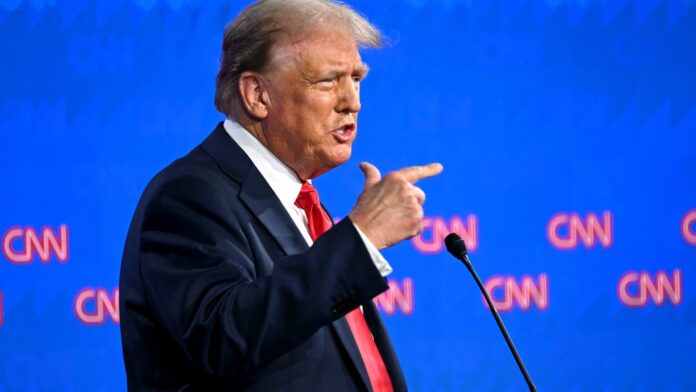Key Falsehoods or Claims:
The main falsehood in this article is the claim that Donald Trump’s inauguration was moved indoors due to the threat of “deep state” conspiracy theories. This implies that there is a secretive and malevolent group within the government working to undermine the Trump administration.
Source Bias:
The article is from the Daily Mail, a tabloid-style publication known for its sensationalist and often biased reporting. The publication has a history of promoting conspiracy theories and falsehoods, so it is important to approach the information with skepticism.
Analysis of Impact:
Falsehoods and conspiracy theories like the “deep state” narrative can shape public opinion by fostering distrust in the government and its institutions. This can lead to increased polarization and a lack of faith in the democratic process. Polling data has shown that a significant portion of Trump supporters believe in the existence of a “deep state,” demonstrating the impact of these falsehoods on public opinion.
Threat to Democracy:
The spread of lies and conspiracy theories poses a significant threat to our democracy by undermining trust in our institutions and fostering division among the populace. If a large portion of the population believes in baseless conspiracy theories, it becomes increasingly difficult for the government to function effectively and for citizens to make informed decisions about their elected officials.
Potential Scenarios:
Hypothetically, the spread of the “deep state” conspiracy theory could lead to increased political polarization and a lack of faith in the government. This could potentially impact voter behavior, as individuals may be more likely to support candidates who perpetuate these falsehoods, leading to the election of officials who are not committed to the truth or the democratic process.
Further Reading:
For further reading on the impact of media influence and misinformation, reputable sources such as the Pew Research Center, the Harvard Kennedy School’s Shorenstein Center on Media, Politics, and Public Policy, and the Columbia Journalism Review provide in-depth analysis and studies on the topic. These sources offer valuable insights into the effects of misinformation on public opinion and democracy.
Source link
Redirect URL
